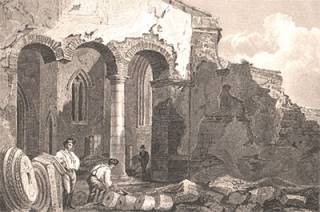The conference 'Staying connected in the post-Roman West: cities, territories and social interactions after the Empire' will be held in Rome on 17 & 18 February 2020.

This two-day event, organised by Isabel Sanchez Ramos and Andrew Reynolds, focuses on the former Roman Empire in the Late Antique and the Early Medieval periods, with specific attention upon large-scale urban developments and their territories.
A further goal of the conference is to encourage participants to think about rejections/resistance to Romanitas in terms of modes of social organisation.
The centrality of Rome as a timeless and sacred place was an essential reference for power in Late Antiquity, both ideological and cultural, followed by the various territories and kingdoms of Europe alongside that provided by Byzantium, although other influences from the Irish and Scandinavian worlds played a key role in the northern and western areas. Current debates in interpreting the role and influence of Rome within the wider Mediterranean and Northern limes and the interrogation of late antique local-central power relationships have transformed our conception of landscape, governance and social dynamics. On-going archaeological identification and exploration of archaeological material and its cultural links, and the latest landscape approaches have thrown new light on the nature of the relationship between Western European power structures and Rome.
This conference is sponsored by the UCL Institute of Archaeology and the Marie Skłodowska-Curie Actions (ULP.PILAEMA project), and supported and hosted by the British School at Rome and the Escuela Española de Historia y Arqueología en Roma-CSIC.
- The conference programme is available to download here
- Registration for the event is available via Eventbrite
Confirmed speakers include:
- Gian Pietro Brogiolo, University of Padova
- Maria Duggan, University of Newcastle
- Corisande Fenwick, University College London
- Martin Goldberg, National Museum of Scotland
- Mark Handley, Independent researcher
- Richard Hodges, The American University of Rome
- Andrew Reynolds, University College London
- Rory Naismith, King’s College London
- José Carlos Sánchez Pardo, University of Santiago de Compostela
- Isabel Sánchez Ramos, University College London
- Riccardo Santangeli Valenzani, Università degli Studi Roma Tre
- Sarah Semple, DurhamUniversity
- Bryan Ward-Perkins, University of Oxford
 Close
Close

